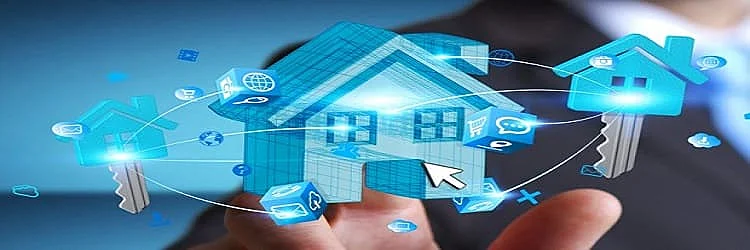The Future Of Mortgage Technology? We've often discussed the impact of technology on business in the age of the pandemic. Virtually all sectors have seen dramatic changes in the way they operate. It's hard to pinpoint where the most impact has been felt, but the Mortgage Industry, if not on the top list, is certainly in the top 3. And it's fair to say that these changes have been sweeping, ushering in a whole new way of doing business. Talk about revolution, the boom in Mortgage Technology has created a very different way of getting a Mortgage Loan.
What Is A Digital Mortgage?
A Digital Mortgage is just what the name implies – no paper, no physical file, and everything from application to servicing is carried out in the digital realm. This process is carried out using the power of Smart Automation and accessing Big Data (terms that didn't exist in the Mortgage Industry only a few years ago) which allowed all the players access to the digital tools previously only available to the well-established FinTechs. These tools allow access to more diverse data sources, making fraudulent applications easier to spot. Record low mortgage rates, the reluctance for face-to-face meetings, and a booming market fueled this dramatic change.
But big data is also helpful in its inclusion of new buyers and borrowers, including immigrants, millennials, and marginalized consumers that may not have a credit score readily available. By looking at nontraditional data like streaming services, telecoms, rent, and utility payments, these new applicants are now customers. Together they may number over 60 million people.
The Future Of Mortgage Technology? The Back Office And Digital Mortgage Technology
Created from a need for non-contact mortgage transactions, this new technology is now viable for brokers and lenders of all sizes. It has the added benefit of widening the market to include millions of new home buyers! But it's not been an easy transition. Traditional mortgage processing involved a lot of face time that strengthened the trust on both sides of the transaction and losing that personal contact has affected the trust factor. But as the number of successful transactions increases, confidence in this new way of doing business grows as well.
Three Signals The Mortgage Industry Is Ready For Change
The ability to pivot many key transactions to digital is building momentum. The Future Of Mortgage Technology? Here are the high points:
- Collateral Valuation – as mentioned earlier, the mortgage industry finds new benchmarks for assessing creditworthiness. It seems entirely revolutionary for accepting ingredients other than credit scores. But then again, this was a revolution born of necessity. Hold on and enjoy the ride!
- Mortgage Underwriting – some of the most significant changes in all of this is the underwriting process. Going fully digital was a shock for many, but this industry is very resilient and resourceful. And it turned out to have some unexpected benefits. It's faced more significant challenges over the years and has learned to adapt.
- Regulate Remote Workforce - Lenders note that the increase of remote workers has forced lending guidelines to ease. A remote job gives homebuyers the ability to purchase a home anywhere, in any neighborhood, town, or state, and not have to find a different job. This has caused a massive revision in verifying the applicant's information.
The Future Of Mortgage Technology? Cause And Effect
These sudden and dramatic changes in how money is borrowed for a home mortgage are undoubtedly here to stay. And now that these solutions to the pandemic have revealed their advantages, many wonder why we didn't do this before now?
The reason for these changes is a global tragedy, but it has also provided an expanded way of doing a traditional business – lending people money to buy a home. Once everybody gets comfortable with the changes, it will seem natural, more efficient, and save everyone money.

Leave A Reply